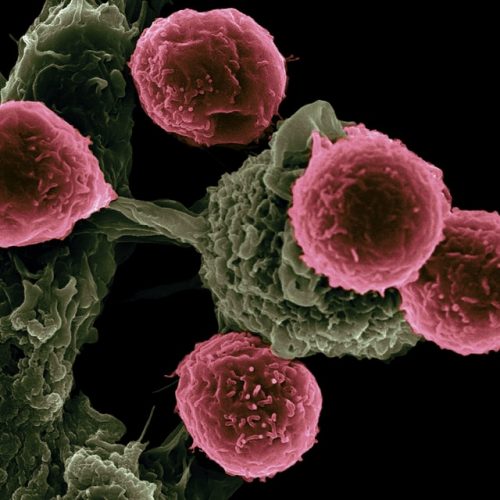The Imperative of Staying Current in Oncology
The field of oncology is characterized by rapid advancements. What was considered cutting-edge yesterday might be foundational today, and obsolete tomorrow. This dynamic environment necessitates a proactive approach to knowledge acquisition. Researchers must be aware of the latest findings to avoid redundant experiments, identify new avenues for investigation, and collaborate effectively. Clinicians rely on the most recent evidence to make informed decisions about patient care, adopting novel cancer therapy protocols and understanding the implications of new biomarkers.
For instance, the rise of immunotherapy has revolutionized cancer treatment, offering hope where traditional methods faltered. Understanding the nuances of different immunotherapeutic agents, their mechanisms of action, and potential side effects requires diligent engagement with specialized cancer research publications and journals. Similarly, breakthroughs in molecular biology have led to a deeper understanding of cancer's genetic underpinnings, paving the way for highly targeted therapies that exploit specific vulnerabilities within cancer cells.
Deep Dive into Key Areas of Cancer Research
Biotechnology's Role in Advancing Cancer Therapy
Biotechnology stands at the forefront of innovation in cancer treatment. It encompasses a broad range of techniques and applications, from genetic engineering to the development of sophisticated diagnostic tools. In cancer therapy, biotechnology has enabled the creation of monoclonal antibodies, CAR T-cell therapies, and oncolytic viruses, all designed to precisely target and eliminate cancer cells while sparing healthy tissue. The continuous evolution of biotechnological methods ensures a pipeline of novel therapeutic agents and diagnostic advancements.
The integration of artificial intelligence and machine learning with biotechnological approaches is further accelerating drug discovery, allowing for the rapid screening of compounds and the identification of potential drug candidates. This synergy promises to shorten the development timeline for new cancer drugs, bringing life-saving treatments to patients faster.
Unraveling Cancer Genetics and Molecular Biology
At the heart of cancer lies a complex interplay of genetic mutations and molecular dysregulations. Cancer genetics focuses on identifying these genetic alterations, understanding their role in tumor initiation and progression, and leveraging this knowledge for diagnostic and therapeutic purposes. Comprehensive genomic profiling has become standard practice, guiding personalized treatment strategies based on an individual's unique tumor profile.
Molecular biology provides the foundational understanding of the cellular processes that go awry in cancer. Research in this area explores signaling pathways, cell cycle regulation, apoptosis, and DNA repair mechanisms. Insights gained from molecular biology research are directly translated into the development of targeted therapies that interfere with these aberrant processes, offering a more precise and effective approach to cancer therapy.
The Promise of Gene Therapy and Immunotherapy
Gene therapy, once a futuristic concept, is now a tangible reality in the fight against cancer. It involves introducing, removing, or modifying genetic material within a patient's cells to treat or prevent disease. For cancer, this can mean engineering immune cells to better recognize and attack tumors, or delivering genes that make cancer cells more susceptible to chemotherapy. While still an evolving field, gene therapy holds immense promise for patients with difficult-to-treat cancers.
Immunotherapy, on the other hand, harnesses the body's own immune system to combat cancer. By boosting the immune response or removing obstacles that prevent immune cells from attacking tumors, immunotherapy has achieved remarkable successes in various cancer types. Research continues to explore new targets and combinations to enhance the efficacy and broaden the applicability of these groundbreaking treatments. The discovery and validation of new biomarkers are crucial for predicting response to immunotherapy and personalizing treatment.
Biomarkers and Their Impact on Precision Oncology
Biomarkers are measurable indicators of a biological state or condition. In oncology, they are invaluable for early detection, diagnosis, prognosis, and predicting response to therapy. From circulating tumor DNA to specific protein expressions, biomarkers provide critical information that guides clinical decisions and enables precision oncology. The identification and validation of novel biomarkers are ongoing areas of intensive cancer research, promising to refine diagnostic accuracy and tailor treatments more effectively.
The integration of advanced genomic and proteomic technologies has significantly accelerated the discovery of new biomarkers, leading to more sophisticated diagnostic panels and a deeper understanding of disease heterogeneity. This allows for a truly personalized approach to cancer therapy, moving away from a one-size-fits-all model.
Accessing Knowledge with Deep Science Workshops
At Deep Science Workshops and Deep Science Implementation, we understand the critical need for accessible, high-quality educational resources in the ever-evolving field of biotechnology and oncology. Our programs are meticulously designed to provide comprehensive insights into the molecular basis of cancer therapeutics and targets, drawing directly from the latest cancer research publications and journals. We bridge the gap between complex scientific literature and practical understanding, empowering participants with the knowledge and skills necessary to contribute meaningfully to cancer research and treatment.
Our workshops delve into the intricacies of cancer genetics, the mechanisms of drug discovery, and the cutting-edge applications of gene therapy and immunotherapy. We emphasize hands-on learning and critical analysis of scientific data, ensuring that participants not only absorb information but also develop the ability to critically evaluate new research and apply it in real-world scenarios. By focusing on the practical implications of molecular biology and biotechnology in cancer, we prepare the next generation of scientists and healthcare professionals to tackle the challenges of cancer head-on.
Through our curated content and expert-led sessions, participants gain unparalleled access to the most relevant and impactful discoveries shaping the future of cancer therapy. We foster an environment of continuous learning, encouraging participants to explore new frontiers in biomarkers, targeted therapies, and beyond. Join us to deepen your understanding and become part of the solution in the global fight against cancer.
Join Now
